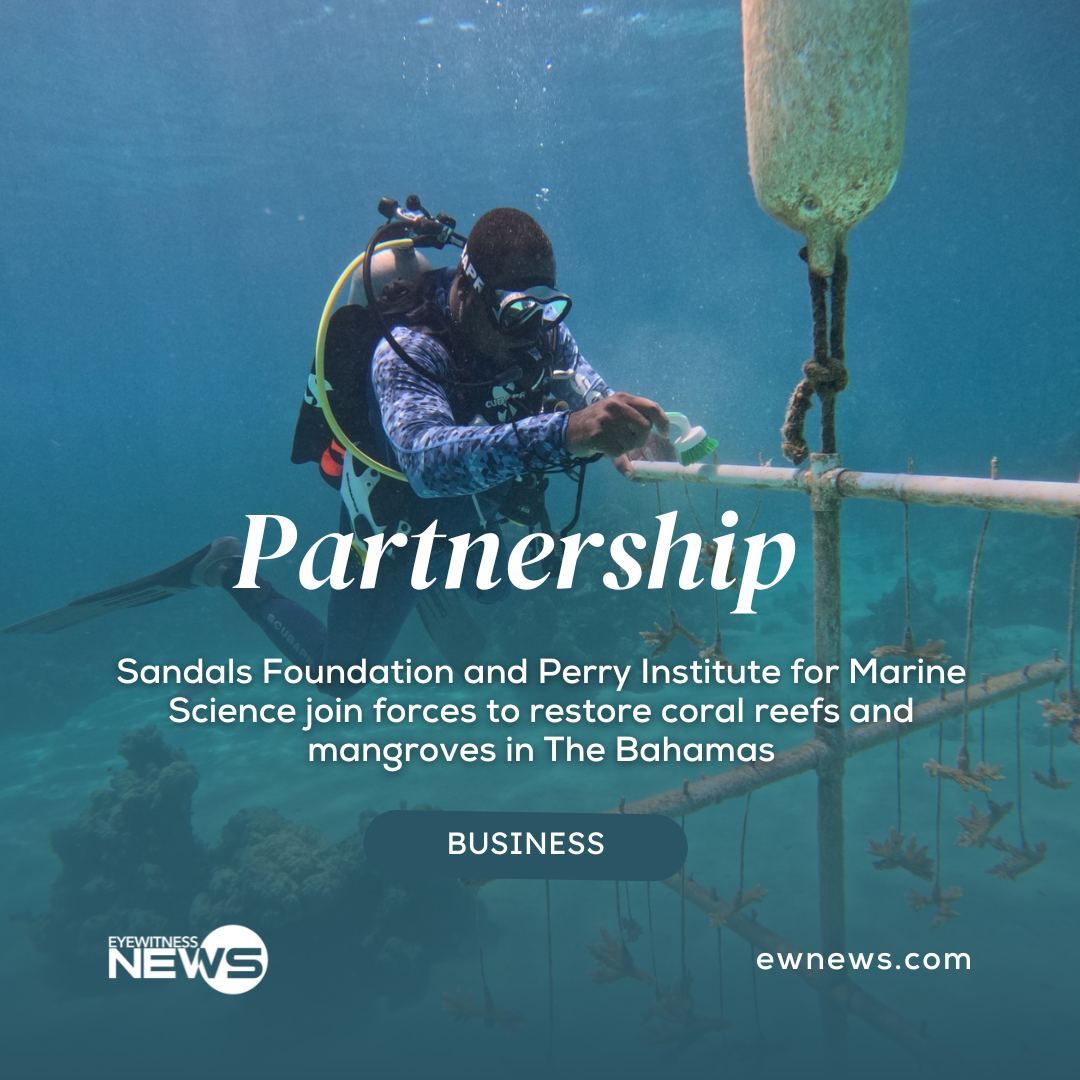NASSAU, BAHAMAS — With the celebration of Oceans Day on June 8, the Sandals Foundation partnered with the Perry Institute for Marine Science in a concerted effort to restore coral reefs and plant mangroves around Nassau, Bahamas. Led by the collaborative efforts of Alfred Stuart, Watersports Manager at Sandals Royal Bahamian, and Kate Harrison, Coral Restoration Specialist at the Perry Institute for Marine Science, the initiative aimed to combat the devastating effects of climate change and human activities on marine ecosystems.
“The ocean is not just a resource, but a lifeline for countless communities around the world,” said Alfred Stuart. “As stewards of the environment, it’s our responsibility to protect and preserve it for future generations.”
Kate Harrison, who led the dive alongside her team of experts including Stefana Roberts and Max Turnquest, emphasized the urgency of action: “Coral reefs are not only biodiversity hotspots but also essential for the health of our oceans. By restoring these ecosystems, we’re not just saving corals; we’re safeguarding entire marine habitats.”
The restoration efforts involve a multifaceted approach, including coral propagation, transplantation, and the planting of mangroves along the coastline. These measures not only enhance marine biodiversity but also contribute to shoreline stabilization and coastal resilience against natural disasters.
“Engaging in these restoration projects is a testament to our commitment to environmental sustainability,” said Georgia Scarlett, Environmental Projects Coordinator at the Sandals Foundation. “By focusing on coral reefs and mangroves, we’re addressing some of the most crucial components of marine ecosystems that support both marine life and coastal communities.”
“We are thrilled to collaborate with the Sandals Foundation in this critical endeavor,” remarked Hayley-Jo Carr, PADI Course Director at the Perry Institute for Marine Science. “By pooling our expertise and resources, we can make a tangible difference in the health of our oceans and the communities that rely on them.”


















